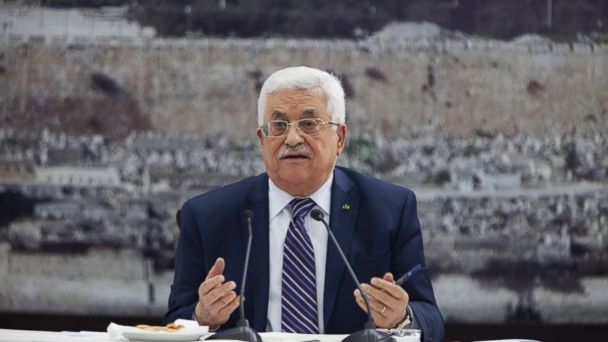Why Palestinians Joining International Court Could Scuttle Peace Talks

Palestinian President Mahmoud Abbas talks during a leadership meeting in Ramallah on April 1, 2014. (Majdi Mohammed/AP Photo)
The Palestinian ambassador to the United Nations said today his country would potentially pursue joining more international organizations if the Israelis fail to honor their commitments in the current round of peace talks - including accession to the International Criminal Court, a move that could cause the already-shaky negotiations to collapse.
Israel fears that if the Palestinians were to join the ICC, they would seek to challenge Israel's presence in the West Bank.
"This is something that really poses a profound threat to Israel," U.S. Ambassador to the U.N. Samantha Power Power said today during a hearing before a House Appropriations subcommittee.
Power noted that Palestinian request to join the ICC would be "devastating to the peace process."
The Palestinian ambassador, Riyad Mansour, said today that his leadership had "the right to do more," including applying to more organizations, if it believed Israel was not acting like an equal partner in peace talks, and didn't rule out a request for a seat at the ICC in The Hague when asked by a reporter.
"The leadership will observe and see how things unfold and it will decide accordingly the timing of the second batch [of applications] and the third batch and so on," Mansour said, adding that the discussion of whether to apply to specific organizations - and how to time those applications - began some time ago.
The United States considered it a silver lining when President Mahmoud Abbas omitted the ICC when he announced Tuesday that he would submit applications to sign on to fifteen international treaties and organizations.
But Mansour said today that Abbas would not have made the move to join these organizations had Israel released a fourth tranche of prisoners as it had agreed to during the initial deal worked out almost nine months ago. Israel, in turn, said they did that only because the Palestinians had not yet agreed to continue negotiating past the current deadline of April 29.
"When they violated that agreement, we were free to do whatever we feel that we need to do and what we did is legal," Mansour said.